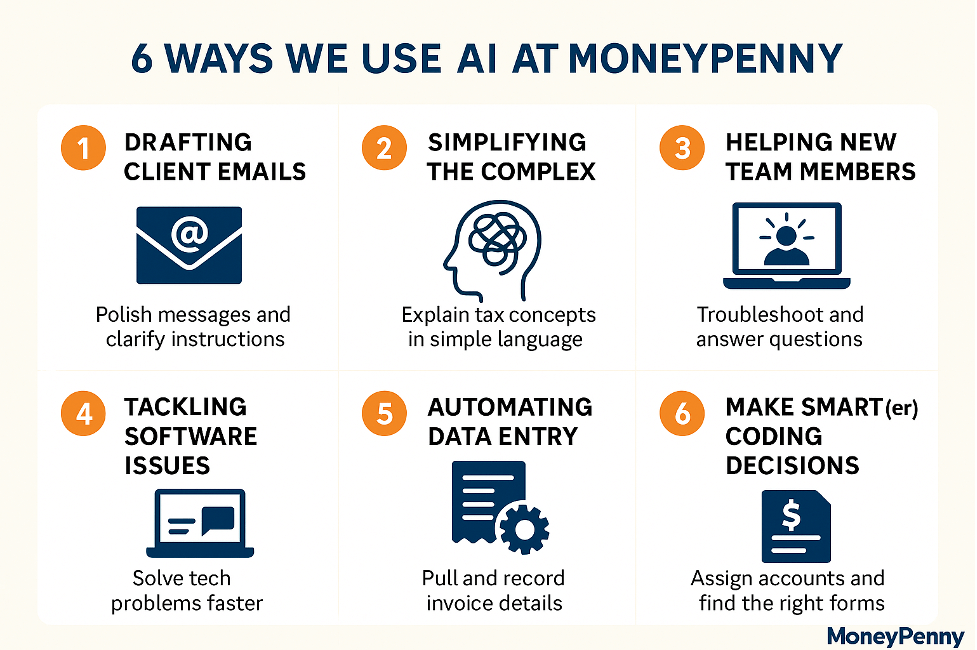As the virtual CFO, which skill sets do you believe you need to bring to the table for your clients?
New technology is very exciting and having a penchant for it in your skill-set is a good idea. Maybe you are secretly a geek, so you end up spending your time finding out the latest and greatest technology tools for your practice management. Or better yet, you design and build it yourself. All that research gives you little time for the face-to-face client interaction, but that is okay because you will have the best technology and a multitude of options to handle any prospect that comes in the door. Secretly, that is where I would hang out if I could.
Maybe you get very focused on learning the new tax laws and changes and how it will affect all your individual and corporate clients. So in the off-season, you are running out to CPE conferences to learn about those 40,000 lines of tax law and get the CPEs you need to make sure you are compliant with your local industry demands. That way when you meet with your client during the crunch of the tax season you are prepared to create that one-time annual fee generator, a tax return.
Perhaps your interests lie in reviewing every transaction your internal bookkeeping staff enters into your client’s accounting, then creating awesome looking financial reports based on last quarter’s data. The P & L and Balance Sheet delivered with your logo and your preferred layout look great. You post it to the client portal and add the hourly rate to the time and billing software.
All the above activities are wonderful, but where, in those activities, are you spending time with your business clients helping them to grow and understand the numbers you produced? Where are you bringing to light what could happen if the client continues on a course that looks either promising or scary based on numbers? Where was the real value you gave to the client? And most importantly, did they quickly send you the payment for that hourly billing of a financial report that was four months out of date and posted to a portal they rarely access until it is a critical need?
In a recent CFO Magazine article, most CFOs agree that their primary job is to be “a strategic, forward-looking thinker and a business partner to the CEO.” Is that you?
Recently a CPA client asked MoneyPenny’s team to assist them in becoming the virtual CFO for a multi-million dollar non-profit on the west coast. On the outside, this non-profit appeared to be doing rather well. They provided necessary state-certified training to emergency and safety personnel. Their students were a combination of private, public and government workers.
After getting through the mess of the back office, the new CPA/CFO found that the biggest client this non-profit focused on was also its worse payee. So much time and attention was being placed on servicing this particular client’s demands for training and the multitude of students, no one within the non-profit ever looked at the accounts receivable cycle for this particular organization. The length of time it took for payments to arrive was perilously close to sending the non-profit into insolvency. Combine this with the effort that was not given to other clients that paid on time but not as often, and the CFO wondered if the board was aware.
As it turns out, the board was not aware of the issue; the training coordinators were not aware the lower negotiated fees based on volume were not being paid promptly. The CPA/CFO presented the data showing the time value of the money and how it was affecting the cash flow, and he then projected out four months of cash flow. This was all part of the SLA he had with the non-profit. What was not part of the SLA was the CPA/CFO presenting these findings at a joint meeting of the non-profit management and their client. During that meeting, the CPA/CFO negotiated a new rate and a new payment schedule. This was a win-win for all parties.
In this function, the CPA/CFO started with his ability to crunch numbers, extrapolated the cash flow moving forward, and then presented it on three occasions in a manner that made sense and allowed room for positive change.





